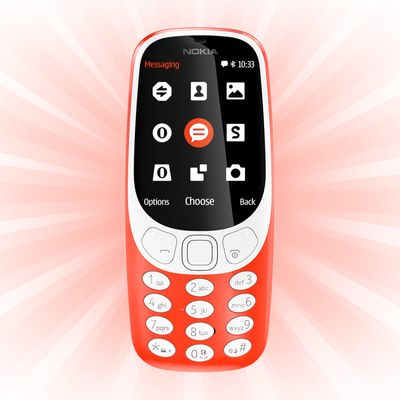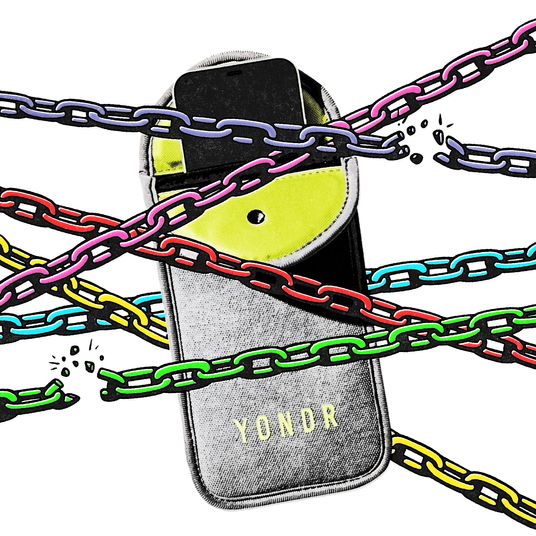
The Mobile World Congress officially started on Monday in Barcelona, but the star of the show was announced before doors even opened: a relaunched version of the legendary Nokia 3310.
The original 3310 was released in 2000, sold over 126 million units worldwide, and is the reason I’m still pretty decent at Snake and will never really get the Nokia ringtone out of my head. The updated version will have a few more bells and whistles, including a full-color screen and a 2.4-megapixel camera, but will still be a defiantly low-tech dumb phone.
The response has been anywhere from enthusiastic to ecstatic:
So how to unpack all these good feelings toward a remake of a 17-year-old handset? The easiest bit to understand is base nostalgia. The Nokia 3310 is the phone many of us grew up with. That gray-green screen, the solid little pop of the number keys as you burned through your limited (!) number of text messages, going a full week without recharging — if you’re of a certain age it’s hard to not feel that tug of sentimentality toward Nokia’s iconic little brick.
And like any emotion you can create a BuzzFeed list around, you can snag people’s attention on nostalgia alone. Witness the sold-out success of the NES Classic this winter or, really, everything Nintendo has done in the past 20 years. Or the surge of excitement around Freewrite, a basic typewriter-and-screen that delivers the same basic experience as using a stand-alone word processor from the 1970s for a few hundred dollars. Giving people a chance to remember an idealized form of the past is now a reliable way to move units — or at least get some press attention.
But it’s not just longing for Snake that explains why so many are so excited about this mostly unremarkable feature phone. There’s also just a whiff of the back-to-the-land urge that’s always present in tech: We love what gadgets allow us to do, but we’re uneasy about what they allow us to become. The Nokia 3310 isn’t just a chance to revisit our youth — it’s a chance to escape the current state of smartphone fatigue.
To remember the original Nokia is to remember when cell phones were something you carried because you could suddenly receive or make a phone call without being at your house. You talked and got text messages, and that was about it. Now, when I step off the subway and my phone gets back on a network, I can simultaneously get notifications that I have a credit-card payment due, a random Twitter egg is calling me a cuck, and I’ve surpassed my data limit for the month.
Bloomberg’s Leonid Bershidsky keys into this urge in his piece “Why I Might Ditch My Smartphone for the Nokia 3310,” writing that the phone could serve as “an antidote to these digitally toxic times.” The Verge’s Vlad Sovov wrote his own anti-smartphone manifesto at the end of January, musing, “I imagine that a phone that acts mostly as a phone would nudge me toward calling people more often, which is a far superior and more human form of communication than a disjointed series of impersonal tweets.”
Which, hey, I get! It’s easy to look at the new version of the Nokia 3310 and dream of a better, simpler life. I’d stop pulling my phone out of my pocket every time I step into an elevator or get in line somewhere. I’d read more books and fewer tweets. Maybe I’d take up meditation — though, maybe I need an app for that? I’m not really sure.
But very few of the breathless articles written after the announcement of the new Nokia 3310 mention that the phone won’t work in the U.S. and Canada, because the new Nokia 3310 will use 2G networks that are virtually extinct here. Nor do many get into the fact that, in most ways, the resurrected 3310 is indistinguishable from many other dumb phones (including ones put out by Nokia, which isn’t really even Nokia anymore).
By all means, grab a Nokia 3310 when it’s available for order. If you’re traveling to somewhere with active 2G networks, it’ll make for a decent burner phone for carrying through an increasingly aggressive customs process here in the U.S.
But people aren’t excited about the Nokia 3310 as a phone, just more what the phone represents. A simpler phone wouldn’t simplify my life, because it isn’t smartphones that have made my life more complex, just the accumulation of years and relationships and responsibilities that define adulthood. And there’s nothing that defines our modern relationship to tech more than believing that the solution to whatever uneasiness we have about our relationship with our gadgets — or our lives in general — lies in purchasing yet another gadget.





























